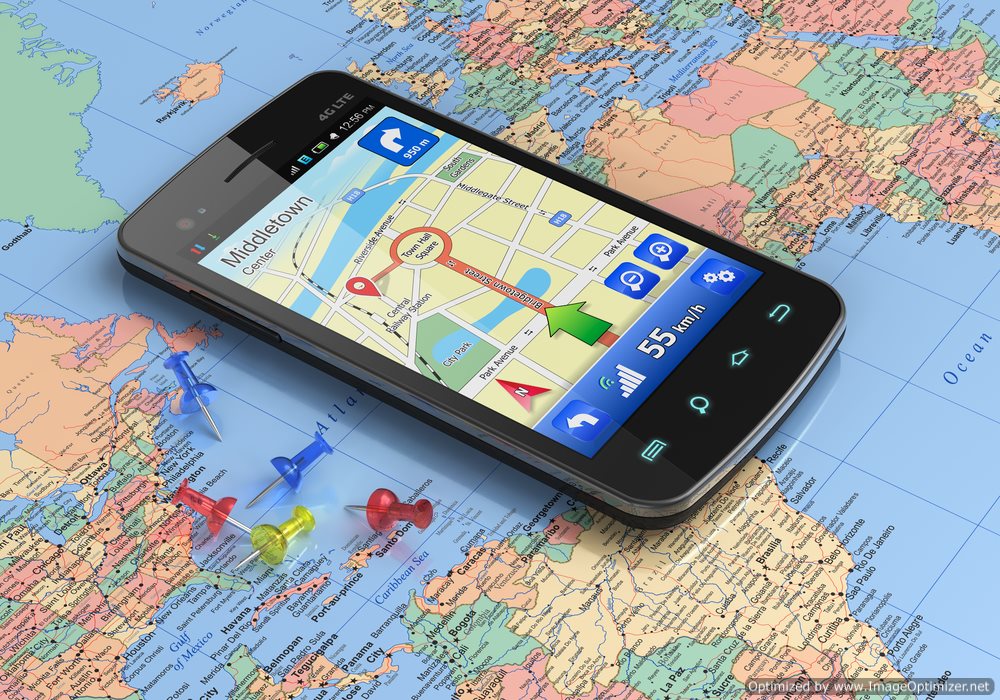Mobile Foursquare For Law Firm Marketing: 7 Tips

One of the hottest social media apps for smartphones is mobile Foursquare. Foursquare is a service that helps people connect to businesses and other venues that are in their immediate area. Not many attorneys are yet making use of Foursquare for marketing purposes, but that doesn't mean they shouldn't be. Particularly if your clientele skews toward young urbanites, you may do very well by using mobile Foursquare to promote your business and get a leg up on your competition. Here are seven quick tips that can help you get the most out of your Foursquare strategies as 2012 draws to a close.
Tip #1: Use Mobile Foursquare Individually First
One of the biggest mistakes you can make as a business is trying to use a new social media service without really acquainting yourself with it first. You'd be surprised how much norms can differ, and what kinds of faux pas you can commit if you're not truly familiar with how users relate to the service.
For this reason, it's usually a good idea to build your own individual account first. This will let you check out the service and learn the ropes without putting your law firm's reputation on the line. Having a personal account will help you to have more relevant and less generic campaigns when you use mobile Foursquare.
Tip #2: Learn How Competitors Use Foursquare
When you initially build your individual account, you should first check to see whether any of your competitors have already been listed on Foursquare. If some of them are already using it to make promotions and special offers, or to advertise with a new campaign, you should monitor their mobile Foursquare presence to see how they're doing and what kinds of campaigns they've been successful with.
You should also keep track of what people are saying about your competitors. If people are praising a specific aspect of your competition when they submit mobile Foursquare tips, you may want to see if you can incorporate that aspect into your own law firm. This kind of competition research is one of the biggest advantages of using social media—without social networks, it's incredibly hard to get that kind of data without resorting to unethical tactics.
Tip #3: Make Your Website Mobile Ready
Before you make your corporate account so that you can use mobile Foursquare for business marketing, have you updated your website recently? It's very important that you have a mobile friendly website if you're using Foursquare. Keep in mind that consumers are very likely to want to look at your website before they make any final decisions about which attorney to hire. Mobile Foursquare users will not be likely to commit to hiring you if your website doesn't work for mobile users or is very difficult to navigate for them.
You may want to set up a redirect that puts mobile users onto a specially designed mobile website. If you do this, make sure that there is an option to use the desktop site, as not all mobile Foursquare users will like the mobile site equally well.
Tip #4: Make Promotions and Discounts
One of the best uses for mobile Foursquare is creating promotions and special offers. You can get a pretty good idea of what's being offered by checking out the Foursquare presence of other attorneys. You may want to offer a free or discounted fee consultation, or you could even advertise some kind of classes about how to defend yourself against criminal charges or avoid a lawsuit.
Providing promotions and freebies increases goodwill toward your company, and makes it much more likely that mobile Foursquare users will help you out by spreading your content virally. You can also use Foursquare to help direct people to useful videos and legal forms on your website.
Tip #5: Watch What People Say About You
Keeping an eye on what people are talking about can make it much easier for you to make needed changes to your law firm. Mobile Foursquare allows users to make “tips” about any business or venue, whether that tip is “this place is fantastic” or “stay away, these lawyers are scumbags.” If you're not already using mobile Foursquare, you could already be receiving tips from users without even knowing about them.
If negative reports are coming into your website, don't immediately get defensive. If the tip appears to be a real one, someone has just provided you with incredibly valuable information about how to improve. You don't need to follow feedback slavishly, but it's a very good idea to at least give people the benefit of the doubt and try to respond to any negative mobile Foursquare tips made about your law firm.
Tip #6: Report Fake Tips to Foursquare
Not all negative tips on mobile Foursquare are actually real. In some cases, it's possible that one of your competitors has placed the negative tip there simply to make sure that you're not as successful. Be honest with yourself about tips—own up to the ones that are real—but if you spot an obvious fake, be prepared to report it to Foursquare.
Unlike some social networks, Foursquare takes fake tips and reviews very seriously, and you will usually be able to have the false tip removed from mobile Foursquare relatively soon after you report it. However, if you never report it, it will stay up—and that can mean some serious damage for your law firm.
Tip #7: Integrate Foursquare With Other Social Networks
It's much more useful to make Foursquare part of your marketing strategy when you've already gone social in other ways. Twitter and Facebook can help you cross promote your Foursquare deals. Make sure that you're not spamming other social networking feeds with posts from either your individual or law firm Foursquare accounts. Spamming behavior is likely to lead to you no longer being followed, because people don't like to be inundated with dozens of updates every single day—especially from businesses.






















